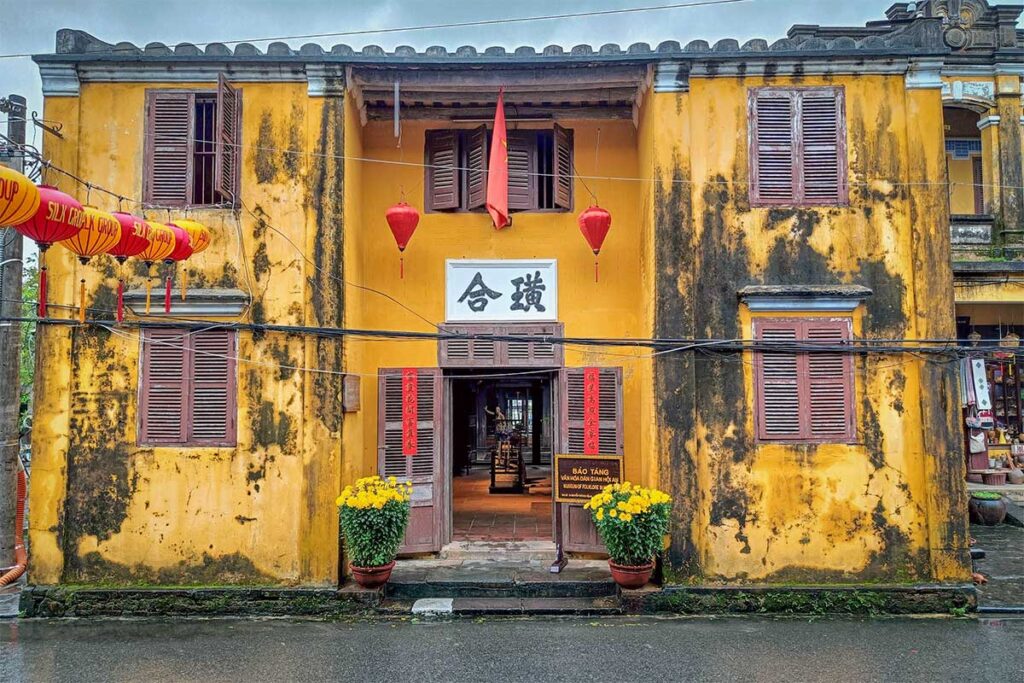1. Precious Heritage Museum
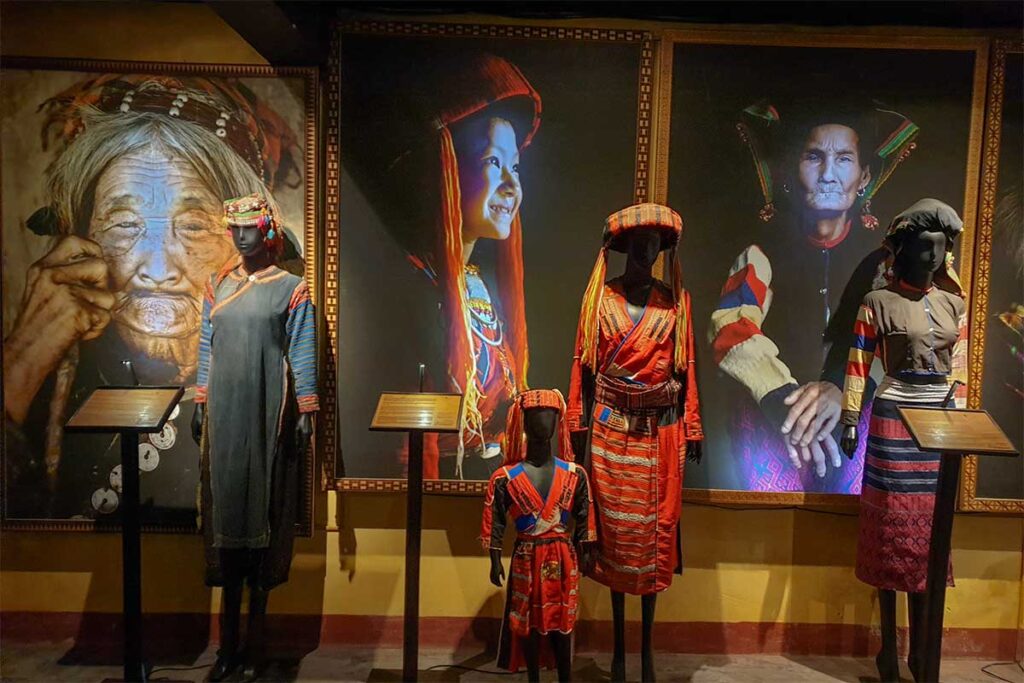
The Precious Heritage Museum is a personal project by French photographer Réhahn, and one of the most unique museums in Hoi An. It blends photography, ethnography, and art to highlight Vietnam’s incredible ethnic diversity — with traditional clothing and cultural stories from over 50 minority groups across the country.
What to expect
The museum is set in a spacious colonial-style building in the quieter French Quarter of Hoi An. Inside, you’ll find large-format portraits, beautifully preserved traditional outfits, and detailed background information about each group — all collected directly by Réhahn during his travels. The clothing on display is often handmade, and some are now so rare they no longer exist outside of this collection.
Why visit
This is not your typical museum — it feels more like walking through a personal archive or a cultural time capsule. It’s a great stop if you’re curious about Vietnam beyond the usual tourist highlights. Entry is free, and the atmosphere is calm and welcoming. For anyone interested in photography, fashion, or indigenous cultures, this is one of the best museums in Hoi An.
2. Museum of Sa Huynh Culture
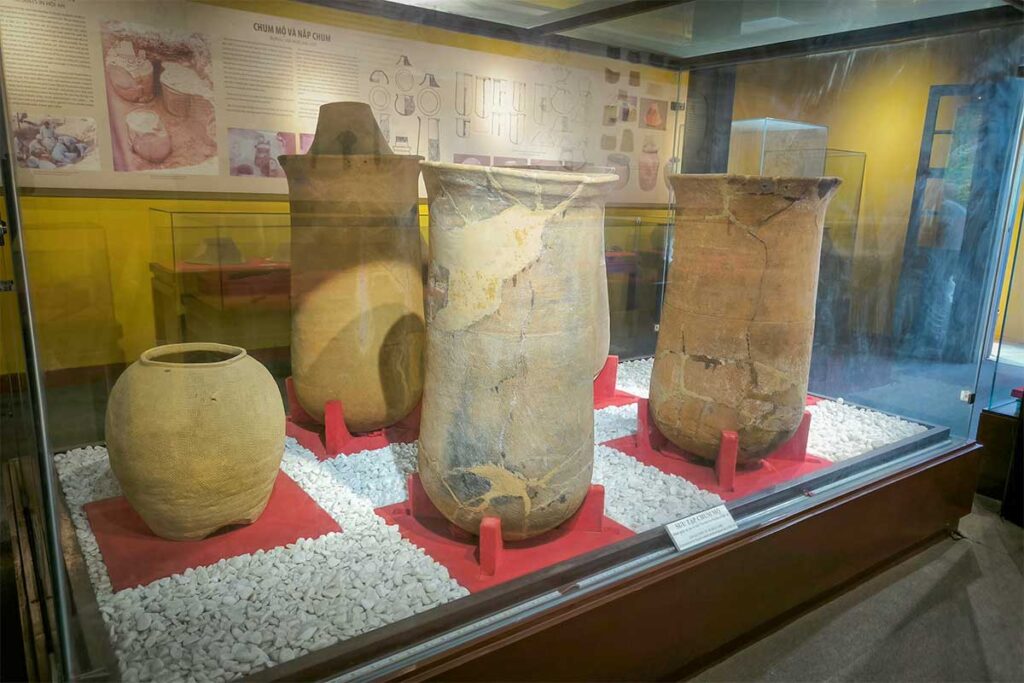
The Museum of Sa Huynh Culture is a small archaeological museum that gives insight into one of Vietnam’s earliest known civilizations. The Sa Huynh people lived in central Vietnam long before the Champa Kingdom, and their presence in the Hoi An area dates back over 2,000 years.
What to expect
The museum houses a collection of artifacts including iron tools, ceramic pottery, decorative jewelry, and distinctive burial urns — a signature element of Sa Huynh culture. These items were discovered in and around Hoi An and the nearby Cham Islands, and they reveal a society that had strong trade links with India, China, and Southeast Asia even in ancient times.
Why visit
If you’re interested in ancient history, this is one of the best museums in Hoi An to explore the region’s early roots. It’s located near the Japanese Covered Bridge, making it easy to add to a walking route through the Old Town. Entry is included in the Hoi An Old Town ticket, and while the museum is small, it offers a surprising amount of depth into a civilization few travelers know about.
3. Hoi An Museum of Trade Ceramics
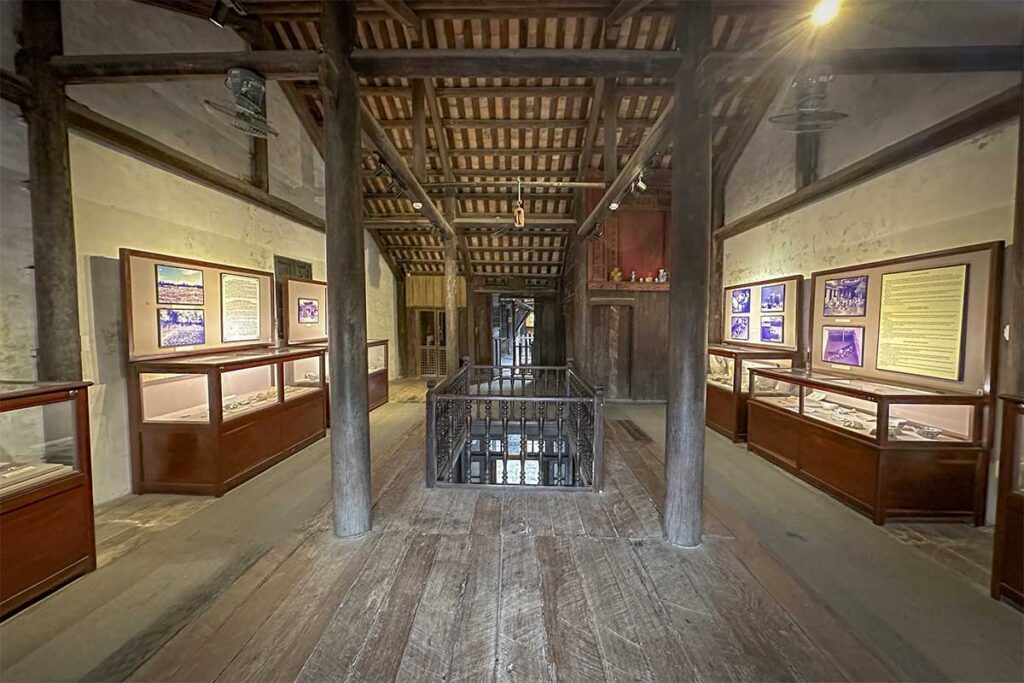
The Hoi An Museum of Trade Ceramics showcases the city’s role as a major trading port between the 15th and 18th centuries. With more than 300 ceramic pieces from Vietnam, China, Japan, Thailand, and even the Middle East, the collection reflects centuries of cultural exchange through maritime trade.
What to expect
The museum is set inside a beautifully restored wooden house typical of old Hoi An, complete with balconies and an open-air courtyard. The displays include bowls, vases, plates, and fragments recovered from shipwrecks near the Cham Islands. Each item helps tell the story of Hoi An as an international trading hub — especially in the days when ceramics were one of the city’s most important exports.
Why visit
This is one of the best museums in Hoi An for anyone interested in trade history, design, or traditional craftsmanship. It’s also a chance to explore the inside of a preserved merchant house, offering a double glimpse into the city’s past. The museum is part of the Old Town ticket and is easy to fit into a walking itinerary around central Hoi An.
4. Museum of Traditional Medicine
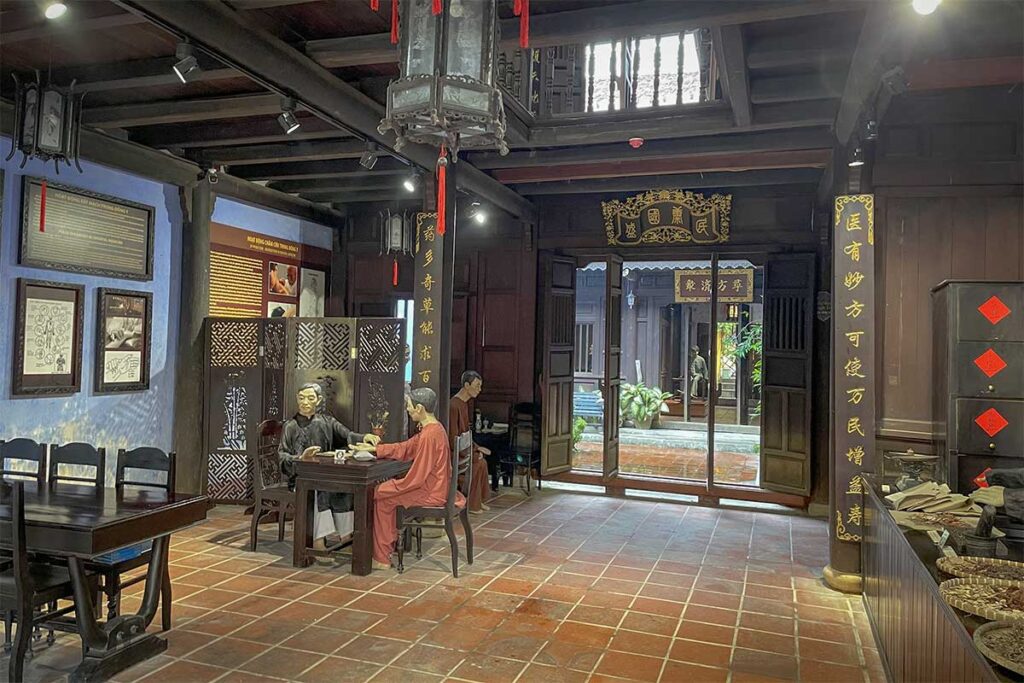
The Museum of Traditional Medicine is a small but fascinating spot that recreates an old Vietnamese herbal pharmacy. It focuses on the healing practices that were once common in Hoi An, when the town was known not just for trade, but also for its herbal medicine shops.
What to expect
The museum is designed like a historic apothecary, complete with tall wooden herb cabinets, ceramic jars, and traditional tools like grinding stones and decoction pots. You’ll also see displays explaining how local healers used roots, leaves, and dried herbs to treat everything from colds to chronic illnesses. Some exhibits show how herbs were prepared, stored, and prescribed — all based on centuries-old knowledge passed down through generations.
Why visit
If you’re curious about everyday life in old Hoi An, this is one of the best museums to get off the beaten path. It’s not very large, but it gives you a rare glimpse into Vietnam’s traditional approach to health and wellness. The setting is atmospheric, and it’s a nice cultural stop if you’re walking through the Ancient Town and want something a bit different from temples or history exhibits.
5. Museum of Folk Culture
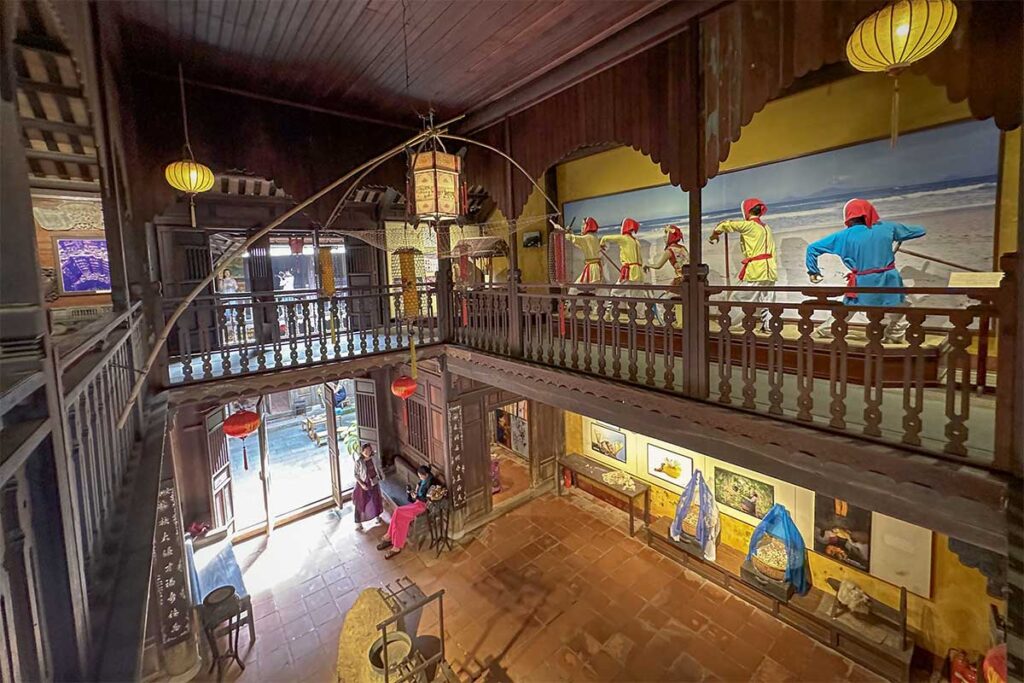
The Museum of Folk Culture offers a hands-on look at the traditional crafts, daily life, and celebrations that shaped Hoi An’s identity. It focuses on the cultural heritage of the wider Quang Nam region, with exhibits that highlight both everyday skills and artistic traditions.
What to expect
On the ground floor, you’ll find displays on local crafts such as lantern-making, carpentry, silk weaving, and embroidery — complete with life-sized models and original tools. Upstairs, the focus shifts to folk performance: costumes from traditional theatre, musical instruments, and photos of festivals that are still celebrated today. It’s an engaging mix of visual and practical history.
Why visit
This is one of the best museums in Hoi An for understanding how local people lived and worked over the centuries. It’s housed in one of the largest wooden buildings in the Old Town, stretching from Nguyen Thai Hoc Street to the riverside at Bach Dang — so even the structure itself is part of the experience. Entry is included in the Old Town ticket, and the spacious layout makes it easy to explore at your own pace. If you’re interested in Vietnamese traditions beyond the usual tourist images, this is a must-see.
Practical tips for visiting Museums in Hoi An
Museums in Hoi An are not just about history — they’re also a great way to cool off, slow down, and dive deeper into the culture beyond the busy streets and lantern shops. Here are a few practical tips to help you get the most out of your visit.
Know what’s included in the Old Town ticket
Several museums, including the Museum of Sa Huynh Culture, Museum of Trade Ceramics, and the Museum of Folk Culture, are part of the Hoi An Old Town ticket (120,000 VND). This ticket gives access to five heritage sites, so choose your stops based on what interests you most.
Visit during quieter hours
Mornings or early afternoons are usually the best times to explore museums. It’s cooler, less crowded, and you’ll avoid the late afternoon rush when many visitors start returning from day trips.
Expect small but detailed exhibits
Museums in Hoi An aren’t huge, but they’re packed with interesting items and stories. Most exhibits are easy to walk through in 20–40 minutes. While some signs are in English, others may be limited — but the displays are usually clear enough to follow even without much text.
Combine with a walking route
Most museums are located right inside the Old Town or nearby, making it easy to include them in a self-guided walk. You can pair museum visits with temples, markets, or a riverside stroll to create a well-rounded half-day or full-day plan.
